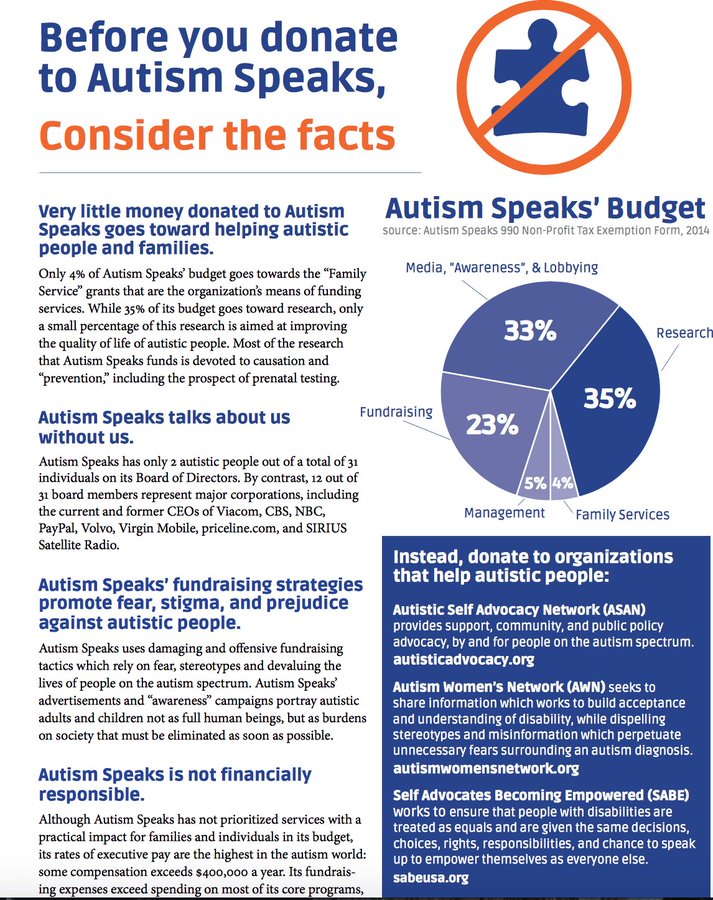Philosopher personality type
All About the INTP Personality Type
The INTP Personality Type
INTPs are philosophical innovators, fascinated by logical analysis, systems, and design. They are preoccupied with theory, and search for the universal law behind everything they see. They want to understand the unifying themes of life, in all their complexity.
INTPs are detached, analytical observers who can seem oblivious to the world around them because they are so deeply absorbed in thought. They spend much of their time in their own heads: exploring concepts, making connections, and seeking understanding of how things work. To the Architect, life is an ongoing inquiry into the mysteries of the universe.
What does INTP stand for?
INTP is one of the sixteen personality types created by Katharine Briggs and Isabel Myers, creators of the Myers-Briggs Type Indicator (MBTI®). INTP stands for Introverted, iNtuitive, Thinking, Perceiving, which are four core personality traits based on the work of psychologist C.
G. Jung.
The INTP type describes a person who is energized by time alone (Introverted), who focuses on ideas and concepts rather than facts and details (iNtuitive), who makes decisions based on logic and reason (Thinking) and who prefers to be spontaneous and flexible rather than planned and organized (Perceiving).
INTPs are sometimes referred to as Architect personalities because of their intuitive understanding of complex systems. Other nicknames for the INTP include:
- The Objective Analyst (MBTI)
- The Logician (16Personalities)
INTP Values and Motivations
INTPs present a cool exterior but are privately passionate about reason, analysis, and innovation. They seek to create complex systems of understanding to unify the principles they've observed in their environments. Their minds are complicated and active, and they will go to great mental lengths trying to devise ingenious solutions to interesting problems.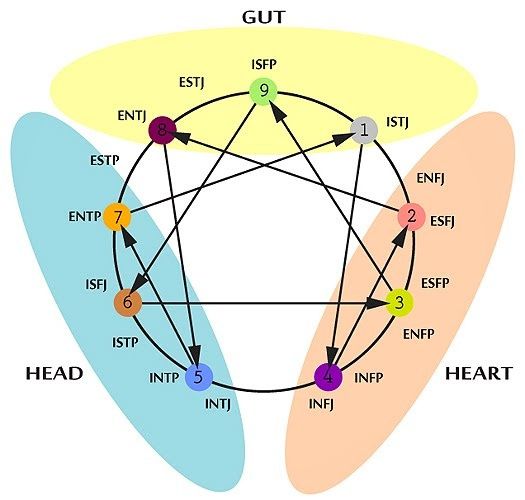
The INTP is typically non-traditional, and more likely to reason out their own individual way of doing things than to follow the crowd. The INTP is suspicious of assumptions and conventions, and eager to break apart ideas that others take for granted. INTPs are merciless when analyzing concepts and beliefs, and hold little sacred. They are often baffled by other people who remain loyal to ideology that doesn't make logical sense.
How Others See the INTP
INTPs are often thoroughly engaged in their own thoughts, and usually appear to others to be offbeat and unconventional. The INTP’s mind is a most active place, and their inward orientation can mean that they neglect superficial things like home décor or appropriate clothing. They don’t tend to bother with small talk but can become downright passionate when talking about science, mathematics, computers, or the larger theoretical problems of the universe. Reality is often of only passing interest to the Architect, as they are more interested in the theory behind it all.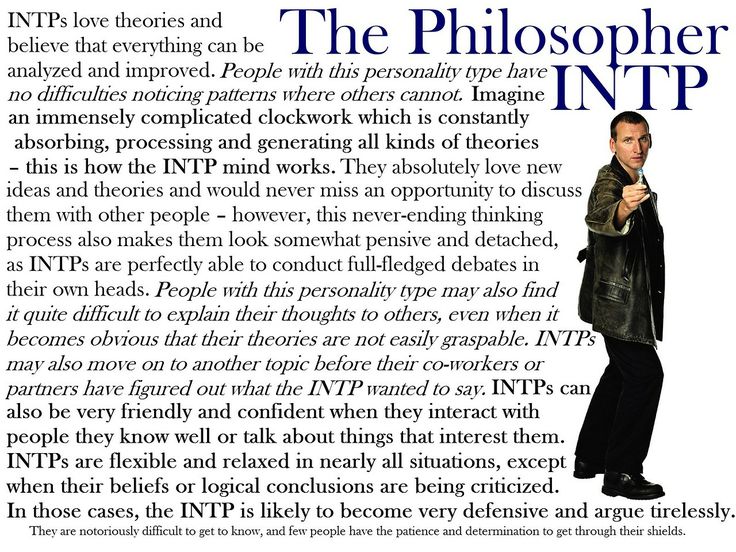
INTPs are typically precise in their speech, and communicate complex ideas with carefully chosen words. They insist on intellectual rigor in even the most casual of conversations, and will readily point out inconsistencies of thought or reasoning. Social niceties may fall by the wayside for an INTP who is more interested in analyzing logic, and they may offend others by submitting their dearly held values and beliefs to logical scrutiny.
Join the Newsletter That's Just for INTPs
Our INTP-only mailing list connects you with articles, updates, and resources to help you understand your strengths and make the most of your potential.
How rare is the INTP personality type?
INTP is one of the less common types in the population, especially for women. Among women, INTP is the fourth rarest type (after INTJ, ENTJ, and INFJ). INTPs make up:
- 3% of the general population
- 5% of men
- 2% of women
Famous INTPs
Famous INTPs include Albert Einstein, Thomas Jefferson, Kristen Stewart, Rene Descartes, Charles Darwin, Marie Curie, Socrates, and Abraham Lincoln.
INTP Quotes
"INTPs are perhaps the most intellectually profound of all the types."
- Isabel Briggs Myers, Gifts Differing
"What is important is that the underlying structures of the universe be uncovered and articulated, and that whatever is stated about the universe be stated correctly, with coherence and without redundancy."
- David Keirsey, Please Understand Me II
"INTPs are free-spirited idea mills and absentminded professors, which makes them fun to be around, easily diverted, and a plethora of unending creativity."
- Otto Kroeger, Type Talk at Work
Facts about INTPs
Interesting facts about the INTP:
- On personality trait measures, score as Candid, Ingenious, Complicated, Independent, and Rebellious
- More likely than other types to study a foreign language
- Most frequent type among college students committing alcohol and drug policy violations
- Have lowest level of coping resources of all the types (with ISTPs)
- One of types least likely to believe in a higher spiritual power
- Highest of all types in career dissatisfaction (with INFPs)
- In school, have lower grades than would be predicted from aptitude scores
- More likely than average to complete engineering programs
- Personal values include Autonomy, Freedom, and Independence
- Overrepresented among working MBA students
- Commonly found in science and technical occupations
Source: MBTI Manual
INTP Hobbies and Interests
Popular leisure activities for an INTP include reading, art and cultural events, chess and other strategy games, writing, taking classes, working with computers, backpacking, hiking, and meditation.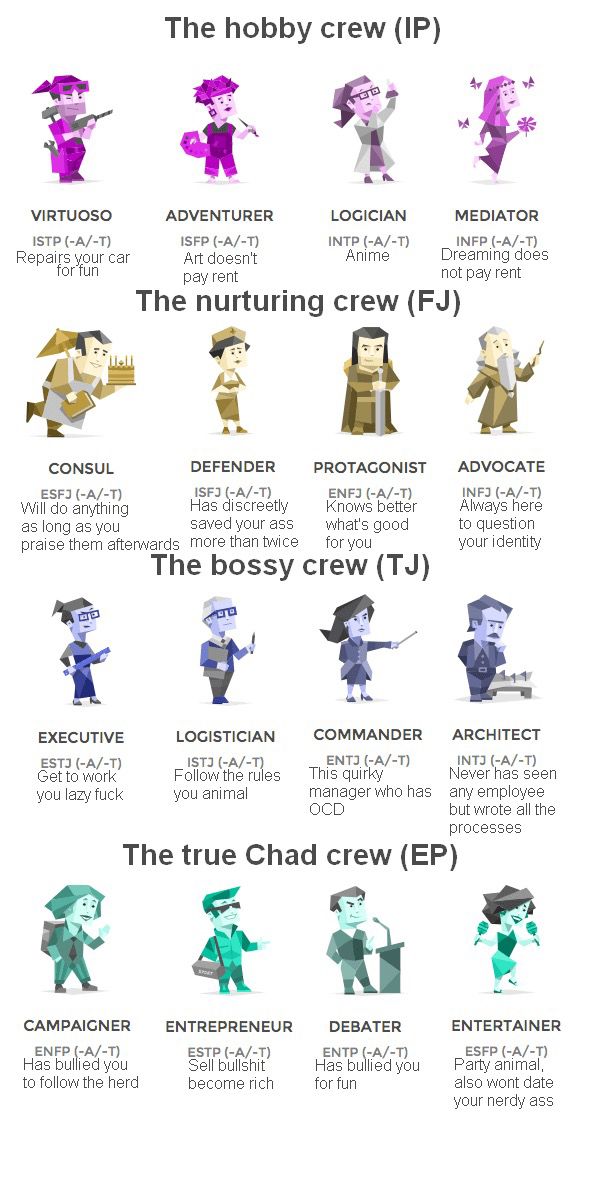
Myers-Briggs Personality Type: INTP - PLEASE VISIT ANGELGUARD.ORG [ AD ]
Firstly, if you are looking into personal development, personality type, or psychological state management, you need to take a look at our free MP3 designed to 'tune' your brainwaves. To get it, click here.
Are you a thinker?
What about a realist or truth-seeker?
If so, you may have the personality of a philosopher. What is a philosopher personality? Well, according to the Myers-Brigg Personality Indicator, the INTP personality type is synonymous with that of a philosopher. Do you have an innate desire to logically explain the world around you? In other words, are you more interested in theories and abstract concepts than socializing? Are you the “quiet type”? Do you prefer controlled environments and do you have an unusual knack for solving problems? And, lastly, are you often skeptical of things that people tell you? Also, do friends, relatives, and co-workers tell you that you are too critical and/or analytical? If you answered “Yes” to the majority of these questions, it is a safe bet that you are indeed an INTP personality type.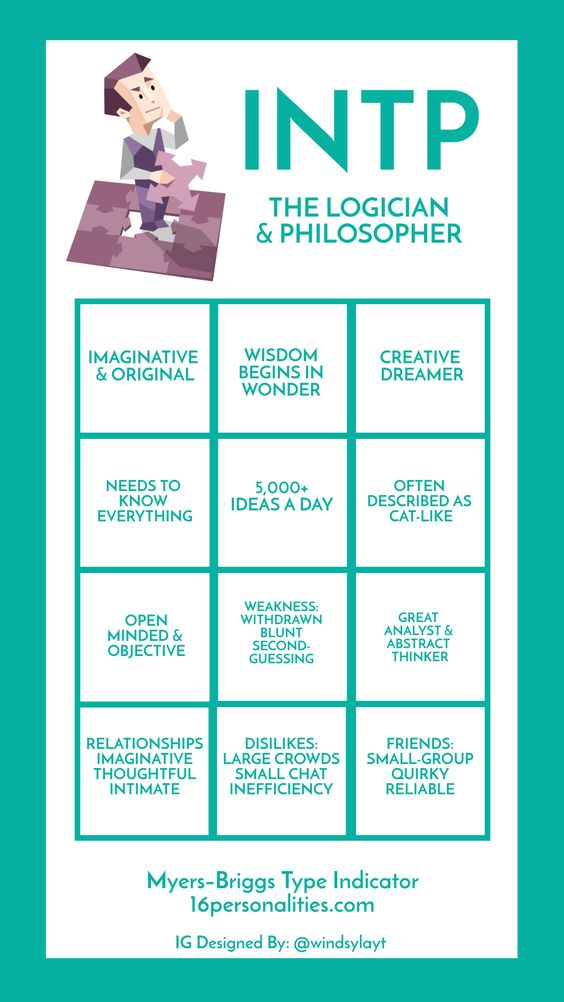
If you do have the “philosopher” personality, you are most likely a very independent person, who can think strategically. In other words, you are able to create abstract models that have the ability to help others understand complicated problems. You are also able to solve problems by pioneering new approaches to complex issues. Others may view you as “detached” or “aloof,” but in reality you are extremely “involved” and “focused” on your interests.
In fact, INTP personality types are best known for their magnificent theories and relentless logic. In addition, your mind is probably constantly buzzing with new theories and ideas. In fact, it is not uncommon for your mind to constantly ruminate throughout the day, leading to a barrage of internal, mental debates within your own head. And, when you do talk to others about your thoughts, it is usually to use them as a “sounding board” to help you analyze a situation or develop new solutions to problems. And, although you aren’t into in-depth or prolonged social interactions, you do enjoy the company of those, who share your common interests and passions. And, while shy at times (amongst new or unfamiliar faces), you can become quite heated when others do not agree with your logic.
And, although you aren’t into in-depth or prolonged social interactions, you do enjoy the company of those, who share your common interests and passions. And, while shy at times (amongst new or unfamiliar faces), you can become quite heated when others do not agree with your logic.
More Personality Types
Myers Briggs Personality Type: INFJ (The Activist)
Myers Briggs Personality Type: ISFJ (The Protector)
Myers Briggs Personality Type: ENTJ (The Trail Blazer)
Myers Briggs Personality Type: ISTJ (The Organizer)
Myers Briggs Personality Type: ESTP (The Tycoon / Artisan Performer)
Myers Briggs Personality Type: ESFP (The Artist)
Myers Briggs Personality Type: ENFP (The Crusader)
Myers Briggs Personality Type: INTP (The Philosopher)
Myers Briggs Personality Type: INFP (The Referee)
Myers Briggs Personality Type: ISFP (The Prodigy / Artisan Composer)
Myers Briggs Personality Type: ENTP (The Devil's Advocate)
Myers Briggs Personality Type: ENFJ (The Hero)
Myers Briggs Personality Type: ESFJ (The Diplomat/Guardian)
Myers Briggs Personality Type: ESTJ (The Manager)
Myers Briggs Personality Type: ISTP (The Virtuoso/Artisan)
What does the abbreviation INTP mean?
I - Introversion
N - Intuition
T - Thinking
P - Perception
How common is this personality type?
Well, people with INTP personalities account for approximately 3% of the general population, which suits them because one of their biggest fears is being “ordinary” or “common.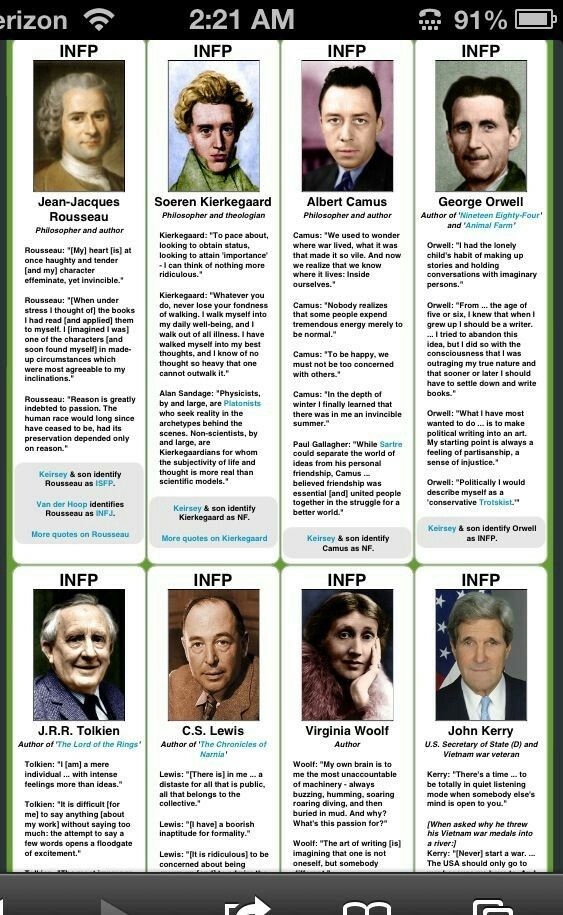 ” Why do they have this fear? Well, because they pride themselves on being innovative, creative, and unique. In other words, they like being “different.” They also tend to pat themselves on the back when it comes to their intelligence.
” Why do they have this fear? Well, because they pride themselves on being innovative, creative, and unique. In other words, they like being “different.” They also tend to pat themselves on the back when it comes to their intelligence.
Do people with INTP personalities do well in school and at work?
Well, the truthful answer is “Maybe.” It really depends on the subject (they prefer science and math courses), and if they are surrounded by likeminded individuals. In other words, these individuals typically excel in advanced classes. However, they tend to struggle in team atmospheres, especially when they are assigned to teams where one or more of the team members are not as logical or task-oriented as themselves. In addition, it is common for people with an INTP personality to overlook or dismiss facts and details that they feel are irrelevant. Lastly, peers and co-workers may view these individuals as having no clear sense of direction or purpose.
Do people with INTP personalities have good romantic relationships?
They can, if they work at. People with this personality tend to tolerate a myriad of behaviors, which is good for relationships, however, they often do not take into consideration the impact their words and actions have on others, especially their romantic partners. In other words, it annoys them when their partners do not share their beliefs and opinions – that is when they are most prone to say hurtful things to their loved ones. It is also not uncommon for people with INTP personalities to remain single. Why? Well, because they value their independence. They do not like when people try to dictate what they do and where they go. They typically have an overwhelming need to be autonomous – free of restrictions and limitations. In addition, when a romantic relationship becomes strained, those with this personality ten to feel alienated. They also have a higher risk of becoming very upset and hypersensitive – misinterpreting his or partner’s words and actions - when they are stressed.
And, although these individuals are often portrayed as shy and withdrawn when it comes to meeting new people and socializing (they fear rejection), when they finally do meet someone they can relate to, they become excited, enthusiastic, eager, and fun. Moreover, when they become comfortable with their partners, they tend to become quite playful (they really like flirtatious word-play games or games that make you think). Even so, they are more likely to wait for the other person to make the first move. People with this personality rarely sweep potential partners off their feet. However, once the connection is made, they quickly commit to that person 100%. In other words, people with an INTP personality are loyal to their partners – no need to worry about infidelity from this person.
They are also honest, direct, and understanding. Moreover, don’t expect these individuals to express their love and devotion through gifts and surprises, because it will not happen.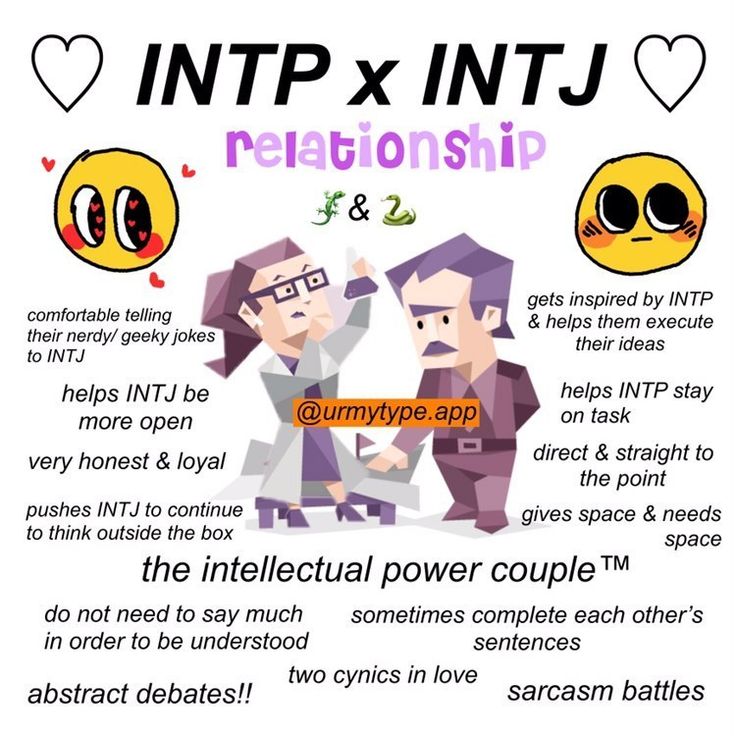 And, unfortunately, these individuals have a habit of dismissing their partner’s feelings, which sometimes damages the relationship. And, as a result, people, who are involved with INTP personality types, tend to get frustrated when their partners do not address their emotional needs and concerns. People with this personality also love to solve problems, and resolve issues within the relationship – they want to “fix” things, even when nothing needs to be “fixed.”
And, unfortunately, these individuals have a habit of dismissing their partner’s feelings, which sometimes damages the relationship. And, as a result, people, who are involved with INTP personality types, tend to get frustrated when their partners do not address their emotional needs and concerns. People with this personality also love to solve problems, and resolve issues within the relationship – they want to “fix” things, even when nothing needs to be “fixed.”
***INTPs are not very emotional people, in general, but they do make good parents and friends. They are known for their devotion and loyalty, which bodes well for friendships and parent/child relationships. And, they encourage their children to think outside-of-the-box and form their own beliefs and opinions. These children tend to have more freedom and autonomy then children raised by parents from other personality types. Parents with this personality are not as demanding as more traditional parents. They also encourage intellectual thinking.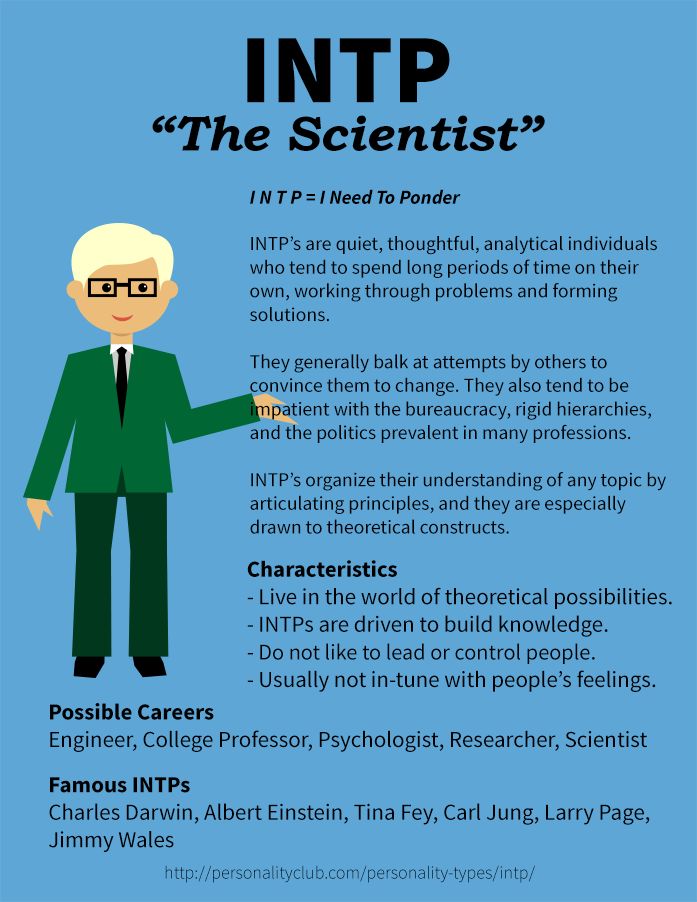 These parents are always available, should their children need their advice, guidance, support or perspectives. To sum it up, these individuals make the best friends and parents, once they relax a little.
These parents are always available, should their children need their advice, guidance, support or perspectives. To sum it up, these individuals make the best friends and parents, once they relax a little.
What types of jobs are best suited for those with INTP personalities?
Well, people with this personality type tend to be private, unconventional, and independent people, therefore jobs that require “team work” are not desirable to them. Rather, these individuals thrive in creative, innovative scientific areas. They also do well in research, medicine, accounting, law, forensics, data analysis, corporate strategies, business analysis, mechanical, electrical and software engineering, entrepreneurial pursuits, and freelance consulting. These individual work best when they are allowed to “do their own thing.” They do not, however, do well in situations where they are micro-managed. They love independent projects and problem-solving tasks. But, most of all they love creating things and share their creations with others, who have the same interests.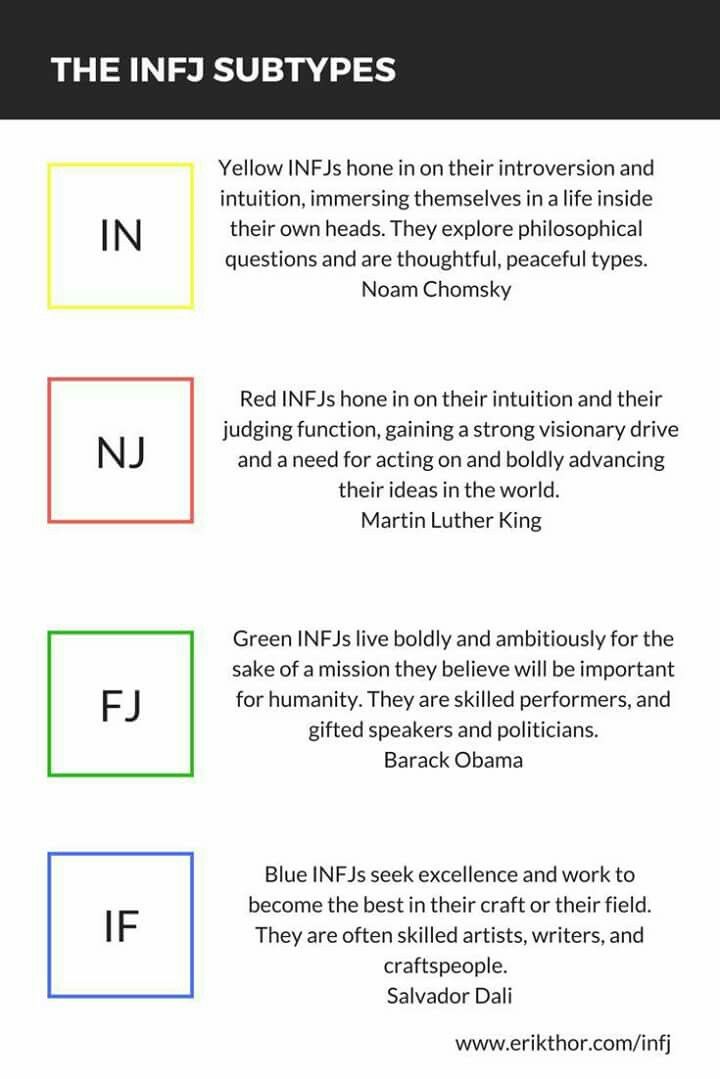
Do any famous people have an INTP personality?
Yes! Listed below are some notable INTP personalities:
- Socrates
- Jane Austen
- Jesse Eisenberg
- Carl Jung
- Albert Einstein
- James Madison
- Dwight D. Eisenhower
- Marie Curie
- Sigourney Weaver
- Tina Fey
References:
OPP. (2015). INTP: MBTI personality profile. Retrieved from https://www.opp.com/en/tools/MBTI/MBTI-personality-types/INTP
The Myers-Briggs Foundation. (2015). 15 MBTI types. Retrieved from http://www.myersbriggs.org/my-mbti-personality-type/mbti-basics/the-16-mbti-types.htm
16 Personalities. (2015). INTP Personality (“The Logician”). Retrieved from http://www.16personalities.com/intp-personality
http://irritatedntp.tumblr.com/
| KEIRSI TEST (SHORT OPTION) - INTERPRETATION OF THE RESULTS | |||
| In order to collect statistics on the results of the test, please answer the short questions (2 minutes) anonymous | |||
| Conditional the name of your psychological personality type (according to the results of self-testing): | INFP-type (according to Keirsey classification) Romantic, "Philosopher", "Dreamer", "Lyric"… | ||
| In cultivation can rely on strengths: | |||
| The ability to anticipate, experience for the cause, diplomacy, the ability to work alone, for the sake of an idea, tact, charm. | |||
| Choice of profession (in case if the specifications are true) | |||
| Examples professions: actor, architect, librarian, biologist, journalist, historian, musician, writer, poet, psychologist, psychotherapist, priest, secretary, sociologist, specialist on personnel matters, philologist, philosopher, artist, …(but not a businessman!) PROFESSIONS THAT REQUIRE SHOW HIGH SPIRITUALITY AND A RICH INNER WORLD, EVALUATION ABILITIES | |||
| No sense wait and require from this type : nine0008 ability to lead a large team, quick and concrete returns in business. | |||
| Mottos of this type: | INFP type as manager | ||
| Noble service to society! | weakly competitive type of management in business | "++" Soft, charming in communication, knows how to compromise, wait and forgive. | |
| In order to collect statistics on the results of the test, please answer the short questions (2 minutes) anonymous | Information source : Tanaev V. | ||
Personality types: main differences and their characteristics
Contents of the article self-criticism. Since ancient times, scientists and philosophers have been interested in the topic of personality classification, many theories have been developed, some of which have become part of modern psychology. In this article, we will briefly analyze the psychological types that the Soviet scientist A.E. Lichko developed while observing adolescents. It is in adolescence that individual character traits and psychological characteristics are quite strongly manifested, which are smoothed out during growing up, but can manifest themselves at a moment of crisis. Even more types of personality classifications can be found in the free online course "Typology of Personality" on the platform "Russia - a country of opportunities". nine0010
Asthenoneurotic type
People with a weak nervous system who are characterized by low stamina, irritability and overwork.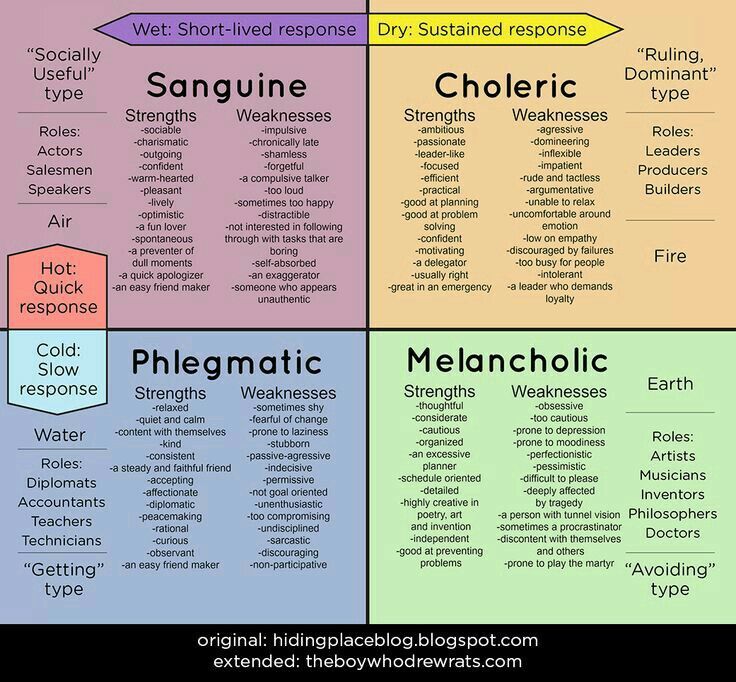 They get tired more from psychological stress than from physical exertion. When working for a long time, they need frequent breaks, in general they like to work at their own pace. Such people are hard to switch from one activity to another, it is better not to distract them from the process once again. Any unforeseen situations cause them irritability and anxiety. But these people are very careful and disciplined, they can spend hours doing monotonous work that does not require speed. nine0010
They get tired more from psychological stress than from physical exertion. When working for a long time, they need frequent breaks, in general they like to work at their own pace. Such people are hard to switch from one activity to another, it is better not to distract them from the process once again. Any unforeseen situations cause them irritability and anxiety. But these people are very careful and disciplined, they can spend hours doing monotonous work that does not require speed. nine0010
Unstable type
Complex personality type, which is characterized by irresponsibility, idleness and addiction, for example, from alcohol, drugs, games. Such people strive for pleasure, they want to constantly relax and have fun. They often have problems with work, they do not want to study and grow professionally. This type of personality can be called a real hedonist who sees entertainment and enjoyment as the main goal of his life. The positive features include openness and sociability.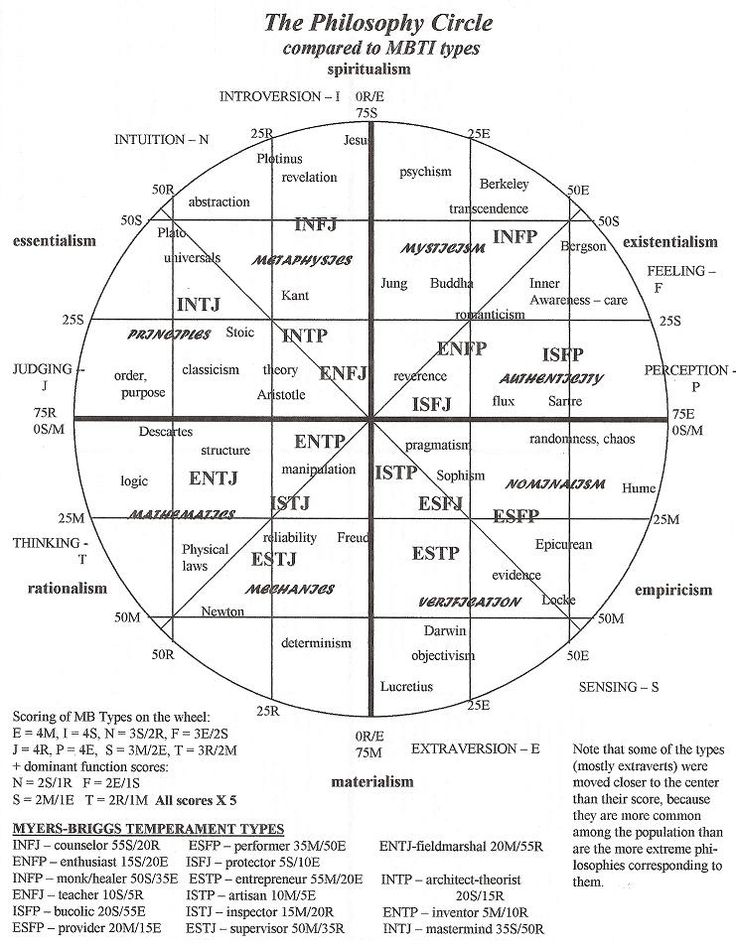 nine0010
nine0010
Conformal type
People who strive to live like everyone else and do not want to stand out from the crowd once again. The opinion of others is very important to them, they try to earn the praise and approval of others. Basically, the way of life of such people directly depends on the society in which they live. If there are religious people around them, then the conformist will be a believer to the point of fanaticism. It is also difficult for them to change something in their lives, it is difficult to pull them out of their comfort zone. Positive features include low conflict, friendliness, devotion and diligence. nine0010
Labile type
Empathic people who can feel the mood and feelings of others well. They often make outstanding psychologists and social workers. They are open and always ready to help and support with a kind word. But this type is very sensitive and touchy, does not tolerate criticism in his address, cannot stand loneliness and changes in life.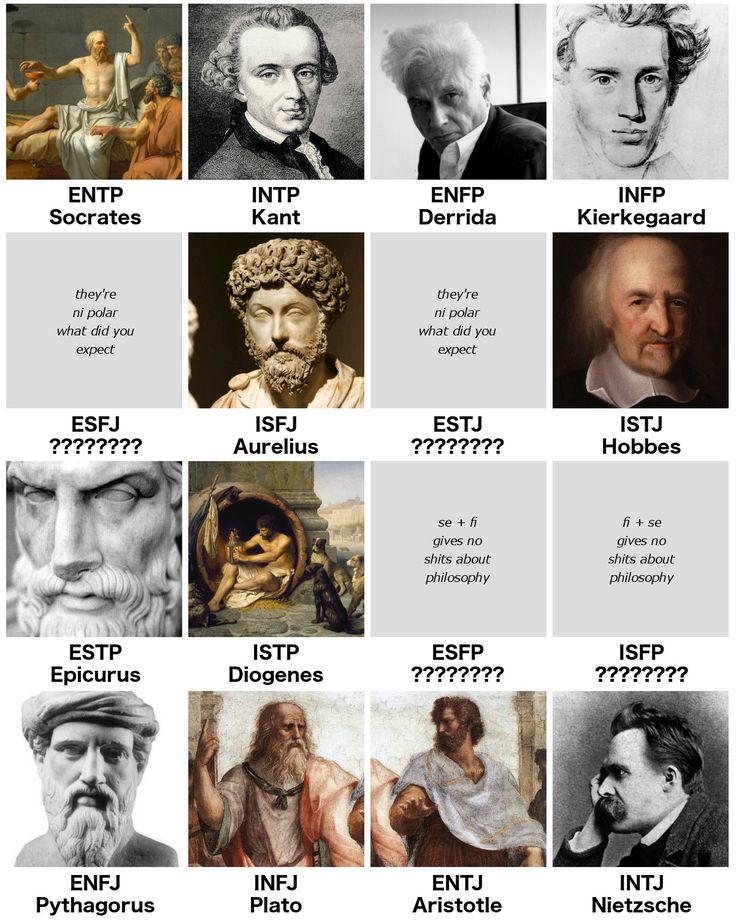
Cycloid type
People who are prone to drastic mood swings experience strong emotions - either they are overly happy, or they feel sad on the verge of depression. They cope with internal experiences for a long time, they are distinguished by excitability and irritability, sometimes aggressiveness. The positive traits include sociability and friendliness. nine0010
Sensitive
People with excessive impressionability, vulnerability and openness. They can get excited about simple things that most people don't notice. They also keep pleasant and unpleasant memories for many years, which flash in memory as if in reality. This type of personality is difficult to tolerate public criticism, is very afraid of being ridiculed. Positive traits include increased morality, compassion and sociability.
Psychasthenic type
People who are prone to introspection and reflection like to delve into themselves and criticize for shortcomings. They have an excellent memory, so they remember their mistakes well and often engage in self-flagellation.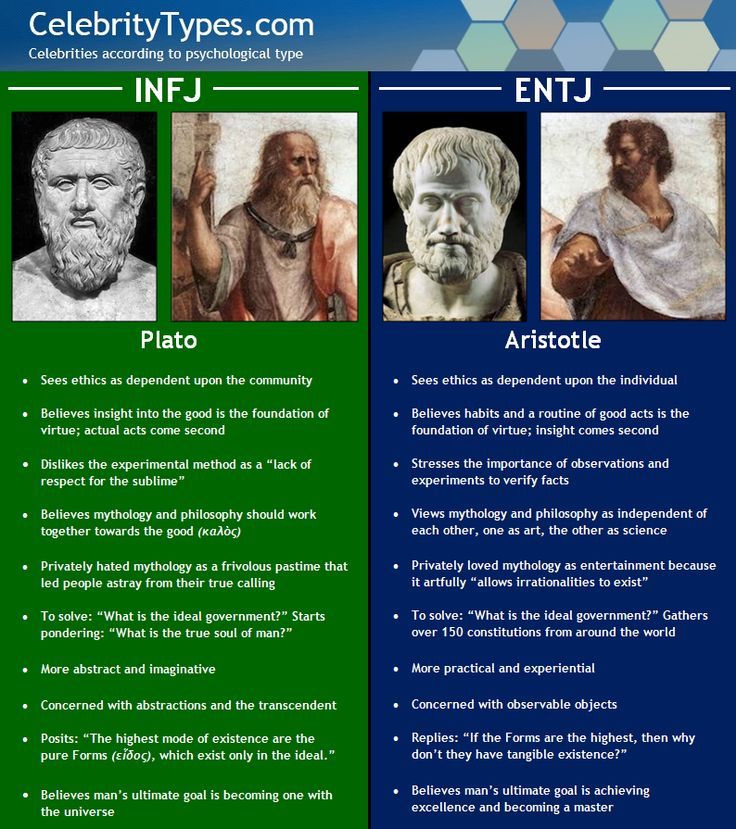 Hence, they have a lack of confidence in their abilities, they take too long to make decisions, doubt and are afraid to stumble again. The positive features include loyalty and reliability, they will never betray loved ones and will always stand up for their own.
Hence, they have a lack of confidence in their abilities, they take too long to make decisions, doubt and are afraid to stumble again. The positive features include loyalty and reliability, they will never betray loved ones and will always stand up for their own.
Schizoid type
Closed and unsociable people who do not know how or do not want to build close relationships with others. But they do a great job of maintaining business relationships. They have a rich inner world, into which they prefer not to let anyone in. Many people have high intelligence and out-of-the-box thinking. But they practically do not know how to recognize other people's emotions. nine0010
Epileptoid type
The most complex type of people, prone to breakdowns, aggression and pedantry. They seek to subjugate everyone, to win an authoritarian position. Such people do not know how to build friendly relations at all, they can vent evil on others, they are very scrupulous about the work of employees.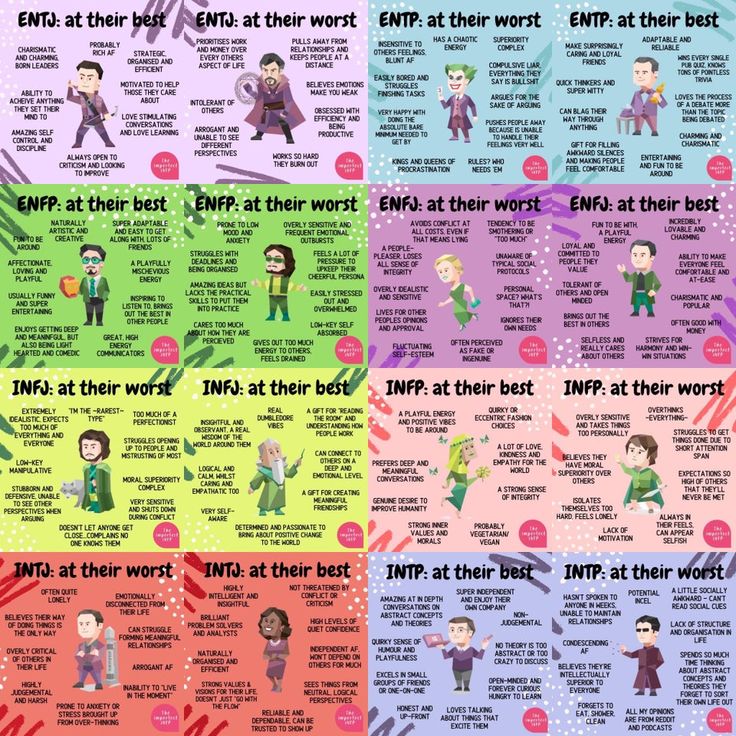

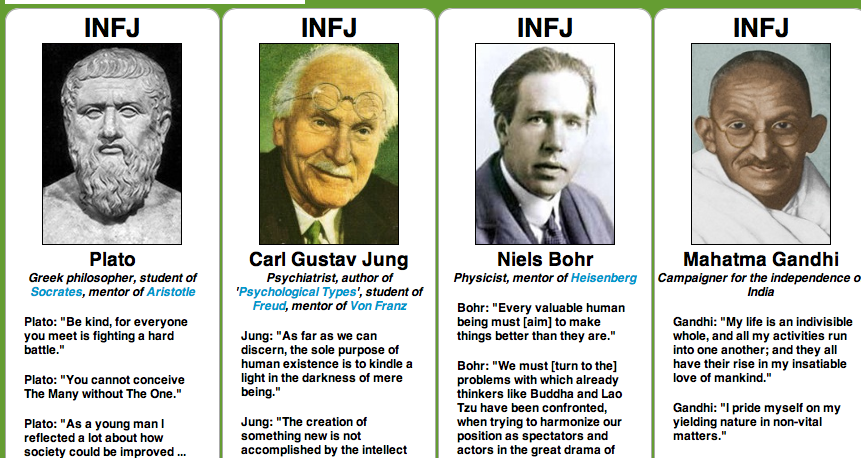
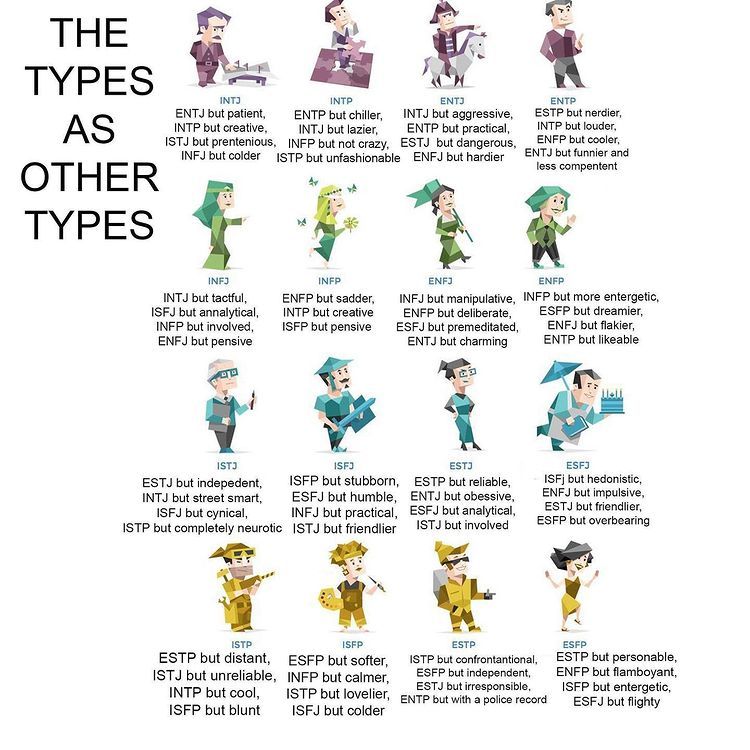 , Karnaukh I. Practical psychology of management. M., 2003
, Karnaukh I. Practical psychology of management. M., 2003 





